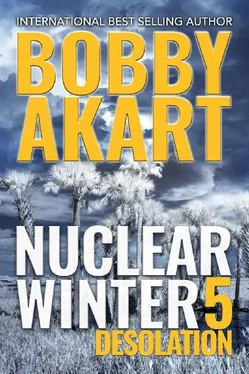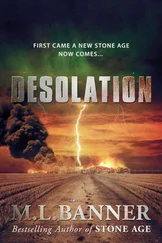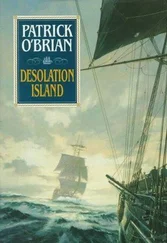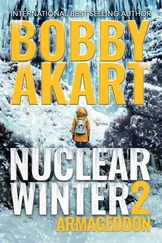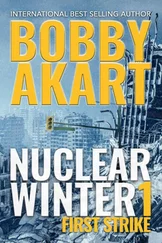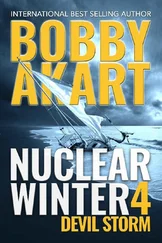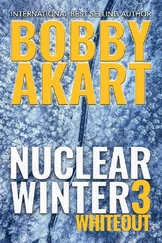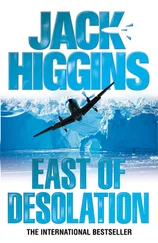She tossed and turned all night, recalling the conversation she’d had with Hank on the beach more than a month ago. They’d just met and developed a mutual attraction for one another. At their age, mature singles were looking for a partner based upon more than looks. They wanted to laugh together. When seriousness was required, an intelligent conversation without rancor was a must. Moreover, they were looking for a best friend.
She and Hank had all of those things. However, it was the serious discussion they’d had on the beach regarding nuclear war and the aftermath that stuck in her head. She’d never admitted this to Hank, but the day she was whisked away by the Secret Service, Erin wasn’t surprised.
Her gut had told her that nuclear war would come to America. It was inevitable.
For a hundred years, as the U.S. became the dominant superpower around the world and the largest economic power, it had become a symbol of freedom and success that most nations should strive to emulate.
Yet, jealousy was a sickness, whether between individuals or nation-states. It’s a form of hatred built upon insecurity and inferiority. As a result, the U.S. created a lot of enemies, even among her allies. Even within her own borders. Because, make no mistake, geopolitics are often born out of emotions. Those who resented America’s success wanted desperately for the nation, and her people, to be knocked down a peg or two by whatever means available.
The evening the missiles had been launched from North Korea toward the U.S. mainland, Erin sensed they were coming. For a moment, she was thankful to be a member of the president’s cabinet. An elite member of the government who’d be protected from the onslaught.
Then she thought about the people she loved. Friends. Family. Hank. Would they survive the nuclear detonations? What would happen to them when nuclear winter encircled the Earth?
To be sure, much of what she’d learned over the years about the prospects of nuclear winter was theoretical. At the time, a nuclear exchange had never taken place. During the conversations they shared, she said the aftermath of what happened during a nuclear war would bring a plague on the planet—nuclear winter. A climate catastrophe equivalent to a nuclear El Niño. An unrelenting winter that would poison the planet’s atmosphere and threaten the world’s food production.
Now her gut told her they were running out of time in dealing with this tyrannical mayor who ran Monroe County. Her attempts to thwart Lindsey’s confiscation plan was as much out of self-preservation as it was to protect Hank and his family. The mayor’s Robin Hood approach was untenable, and despite the fact it would fail, Hank and his family were destined to be prime targets during the implementation. By association, Erin would be imperiled as well.
Erin’s thoughts had kept her up most of the night, and she constantly checked her watch, waiting for 5:00 a.m. when Sonny turned on the main house generator for an hour. She planned on transferring the photographs she’d taken to Hank’s computer. Then she wanted to create flyers to be handed out to the residents of Marathon and posted on every street. They needed to rally the troops to take a stand against Lindsey. She knew, however, the Albright family couldn’t do it alone.
At a few minutes before five, she got dressed for the day and made her way to the kitchen. She prepared the coffee, ready to press the on button the moment the generator started. Unknowingly, Sonny tortured her, as he was several minutes late. Normally punctual, he’d been up late patrolling the grounds with Jimmy before relinquishing the duties back to Peter.
Erin was wide awake and didn’t need the caffeine coursing through her veins to hit the ground running. Within a second of the generator-supplied power turning on, she started the coffeemaker, flipped on the light over the kitchen sink, and rushed into Hank’s office, phone in hand.
She was proficient on the computer and capable of using Microsoft Word to create most kinds of documents. Once she settled on the verbiage designed to evoke the emotions of shock and fear in anyone who read it, she printed six different flyers, each with a unique image of the Winn-Dixie carnage. By the time they were printed, she was ready to run them through the copier. At first, unsure of Hank’s supply of paper and toner, she printed a limited quantity of three hundred She made a mental note to look up Marathon’s mayor, Juan Ramirez, to see if he had a means to print additional copies for distribution.
“You’re up and at ’em,” said Hank after he took a sip of his coffee. He glanced at his desk and noticed she didn’t have any. “Can I get you coffee?”
Erin turned and reached for his mug. “Just a sip of yours,” she replied. Then she smiled and gave him a kiss on the cheek. The two hadn’t slept together. They’d been affectionate and related to one another as a couple. Somehow, taking their relationship to that next level hadn’t come to fruition. They’d been a little busy, after all.
“What are you working on?” he asked as she handed the coffee back to him. Erin organized the six sets of flyers in neat stacks and used binder clips to keep them separated.
With her back to him, Erin caught her breath after a night of her brain working overtime and a frenzied morning preparing for the day. She slowly turned to Hank. “It’s gonna come to a head today, Hank. I feel it in my gut.”
Hank furrowed his brow. “I don’t know, Erin. Mike and his buddies worked until well after midnight. They double stacked vehicles all the way down the bridge to Fred the Tree.”
“Where?”
“Oh, sorry. It’s a locals’ thing. About halfway down Seven Mile Bridge, on the old road, there’s an Australian pine tree growing out of a small patch of soil. It became a symbol of hope to locals following Hurricane Irma tearing through the Keys in 2017. Despite its shallow root system and a vicious storm trying to rip it apart, it survived. Fred the Tree, like the people of the Keys, was stronger than Irma’s brutal winds.”
The story caused some of the tension to ease for Erin. Maybe it was the anecdotal story about the Florida Keys or it was Hank’s presence. She approached him and gave him a long hug. Then she whispered into his ear, “Today, you’ve got to be Fred the Tree. The people of the Keys need someone like you, Hank.”
“Today?” he asked.
“I think so. It’s time to get ready to take the lead.”
“I don’t think we’re ready to face off with Lindsey.”
“You have to be,” she responded, patting him gently on the heart. “They need a leader, Hank. Not necessarily someone who does the greatest thing. They need someone who inspires them to do great things alongside you.”
Friday, November 15
Big Pine Key
The dim light of dawn woke Lacey up first. She and Tucker had decided to sleep on the boat and wait to see what the sheriff’s confiscation teams’ next move was. Overnight temperatures in the Keys dipped down into the low fifties, twenty degrees below normal. It was the first night that Lacey had slept outside since that fateful evening that Owen died. This was nothing compared to the bitter cold they’d endured. In fact, the temperatures in the Keys were similar to those in San Francisco at this time of year.
She stretched and then made her way down the dock to a concealed spot behind a stand of mangrove trees to relieve herself. As she peed, she listened for activity on Big Pine Key.
The Florida Keys were notoriously laid-back and not beset by the hustle and bustle of city life. Generally, the only noise an early riser might hear was the fishing boats going out for the day. On an island like Big Pine Key, there was no commuter traffic. Many people walked to their jobs or rode bicycles. Unless the weather was bad-tempered, most vehicles remained parked.
Читать дальше
